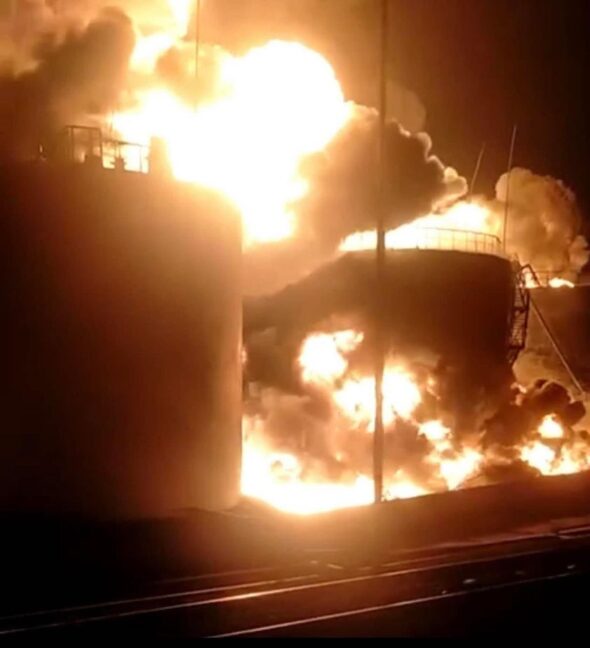The Russian invasion on Ukraine and the increasingly severe sanctions mean that it is time to get ready for a drop in supply of Russian hydrocarbons, from which the Polish economy should become independent as soon as possible. Our windows to the world and energy sources must be under special protection – writes Wojciech Jakóbik, editor-in-chief at BiznesAlert.pl.
The energy crisis that started in mid-2021 may deepen due to the destabilization caused by Russia’s attack on Ukraine a few hundred kilometers from the Polish capital, Warsaw. While the attack on Kyiv continues, the West is increasingly isolating the Russians by withdrawing from economic cooperation on the one hand, and imposing sanctions on the other. It is necessary to reckon with the possibility the supply of hydrocarbons will be interrupted if Russia’s Gazprombank is excluded from the SWIFT system, which has not yet occurred, or if other sanctions restricting the possibility of cooperation with Gazprom or Rosneft are introduced. Poland’s gas reserves will last one month, oil and fuel less than two months. The country has an LNG terminal and gas connections with neighbors allowing it to benefit from solidarity aid within the European Union and from emergency supplies from the US, Qatar and elsewhere. It has an oil terminal in Gdańsk that makes it possible to survive a supply disruption like in 2019, when oil was contaminated and could not be imported. There is a possibility that Russian capital will be excluded from the gas and oil infrastructure in Europe. Gazprom’s shares in the transmission infrastructure and Rosnieft’s shares in the Schwedt refinery in Germany may be targeted. The Polish energy sector has not been penetrated by Russian capital, so there should be no challenges in this regard. However, hybrid threats to strategic energy infrastructure must be taken into account, especially considering the ongoing huge cyber-attack on Russia’s energy industry, of which the West may be accused.
Poland’s energy policy in the near future should be focused especially on security of supply, giving less priority to economic profitability and environmental considerations. It is not clear how the war in Ukraine will unfold in the face of the growing military support from the West. Existing generation capacity must be secured and there cannot be any talk of disconnecting megawatts from the grid. Poland and its allies should maximise the use of existing generation capacities, including nuclear power in Germany. Poles may be forced to postpone plans to shut down coal power for security reasons. However, industries and households must be guaranteed a maximum supply of energy in the event of a deepening crisis.
Energy policy must be an important element of Poland’s preparations for the possibility of a European conflict, even if tensions soon fall due to the improvement of the situation in Ukraine. For this reason, the Polish energy sector should already enter a state of emergency, reminiscent of the characteristics of a state of war.









